Please fill out the following information, and RRFC Admissions will contact you to discuss our program offerings:
Issue #217
by Liya Swift
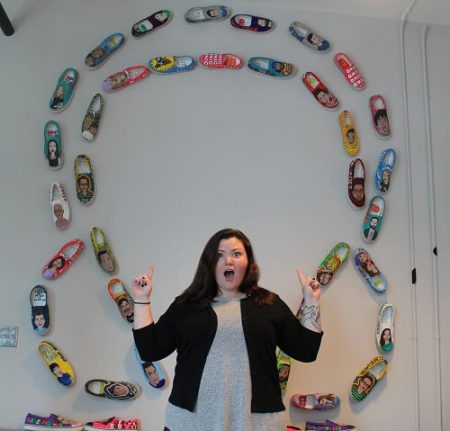
Recording Connection grad Jordan Duffy at Earwolf
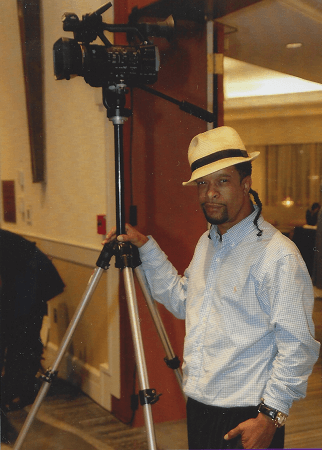
Sean Taylor of Visual Jedi
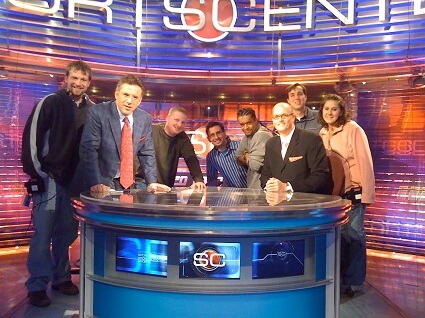 Regarding your time at ESPN, they say in order to work in sports broadcasting you’ve really got to be on your game because oftentimes it all comes down to the second.
“It’s very on the edge. [There are times when] you’ve got the talent showing up one minute before we go on air… and we’re trying to get the lighting on them and we’re trying to mic them up and we’re trying to set the camera focus on them and all of that stuff…
Another thing is just the overall amount of information in these producers. They’re obsessed. They want to bring in the latest information… when something in sports happens, these producers want to mix up the content…So people have got to scramble and rearrange the script, rearrange the teleprompter, rearrange the video that they talk to, within the commercial break, within seconds…
You’re pushing all these buttons and you’re hearing the speaker go to break, three, two, one, and break time. And at the break time we’re doing something called ‘fixes’ where, if we made a mistake on something we will re-voice it and redo it in the commercial break, then cue it back up again and get ready to go back on air again. It’s kind of an adrenaline rush.”
What’s your advice on how Film Connection students can make the most of the program while they’re in it?
“I would say to be a sponge, basically. Observe as much as you can and do as much hands-on as you can. Really, honestly, I would say take this opportunity to gain real-world experience while you can, because the real world is changing, and when these mentors are with you, they’re actually preparing you to take over or assist with the company.
That’s really what my main goal is when I’m with a mentee (extern), just trying to prepare them to eventually sit in my chair so I can walk away. That’s what I told a guy who said, ‘How do I know when I’m ready?’ I said, ‘When you can sit down in my chair and just edit a wedding from beginning to end. You can take out my camera, pop in an SD card, ingest it and edit it and know what you’re doing. And when the glitches happen, you can get over it and actually finish it…That’s how you know you’re ready.
Other than that, you can have as many pieces of paper as you want in your hand that say that you did this and that and helped out halfway with a project, but until you put some muscle into the game, and build your own confidence level and actually do it, none of that matters.”
Learn how Film Connection works.
Regarding your time at ESPN, they say in order to work in sports broadcasting you’ve really got to be on your game because oftentimes it all comes down to the second.
“It’s very on the edge. [There are times when] you’ve got the talent showing up one minute before we go on air… and we’re trying to get the lighting on them and we’re trying to mic them up and we’re trying to set the camera focus on them and all of that stuff…
Another thing is just the overall amount of information in these producers. They’re obsessed. They want to bring in the latest information… when something in sports happens, these producers want to mix up the content…So people have got to scramble and rearrange the script, rearrange the teleprompter, rearrange the video that they talk to, within the commercial break, within seconds…
You’re pushing all these buttons and you’re hearing the speaker go to break, three, two, one, and break time. And at the break time we’re doing something called ‘fixes’ where, if we made a mistake on something we will re-voice it and redo it in the commercial break, then cue it back up again and get ready to go back on air again. It’s kind of an adrenaline rush.”
What’s your advice on how Film Connection students can make the most of the program while they’re in it?
“I would say to be a sponge, basically. Observe as much as you can and do as much hands-on as you can. Really, honestly, I would say take this opportunity to gain real-world experience while you can, because the real world is changing, and when these mentors are with you, they’re actually preparing you to take over or assist with the company.
That’s really what my main goal is when I’m with a mentee (extern), just trying to prepare them to eventually sit in my chair so I can walk away. That’s what I told a guy who said, ‘How do I know when I’m ready?’ I said, ‘When you can sit down in my chair and just edit a wedding from beginning to end. You can take out my camera, pop in an SD card, ingest it and edit it and know what you’re doing. And when the glitches happen, you can get over it and actually finish it…That’s how you know you’re ready.
Other than that, you can have as many pieces of paper as you want in your hand that say that you did this and that and helped out halfway with a project, but until you put some muscle into the game, and build your own confidence level and actually do it, none of that matters.”
Learn how Film Connection works.
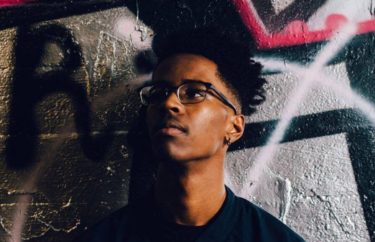 Recording Connection student Brandon Durden, who externs at Madison Records, is glad to be back, learning all he can:
“There were some personal matters that led me to take a break from the program for a while but after they were taken care of, I hit ground running with my studies again. Firstly, I had to complete my sine wave assignment which was definitely a joy to complete. I got reminded quickly of past lessons as I ventured through Pro Tools and carefully crafted my 1 minute tune…
I had to complete my midterm which helped me take extra time to review all of my past lessons and it definitely brought me back up to speed. I ended up passing it with a 95% missing only 2 questions. What a treat! I jokingly told my mentor that I was ready to sit in his seat to which he laughed…It’s good to be back!”
Recording Connection student Brandon Durden, who externs at Madison Records, is glad to be back, learning all he can:
“There were some personal matters that led me to take a break from the program for a while but after they were taken care of, I hit ground running with my studies again. Firstly, I had to complete my sine wave assignment which was definitely a joy to complete. I got reminded quickly of past lessons as I ventured through Pro Tools and carefully crafted my 1 minute tune…
I had to complete my midterm which helped me take extra time to review all of my past lessons and it definitely brought me back up to speed. I ended up passing it with a 95% missing only 2 questions. What a treat! I jokingly told my mentor that I was ready to sit in his seat to which he laughed…It’s good to be back!”
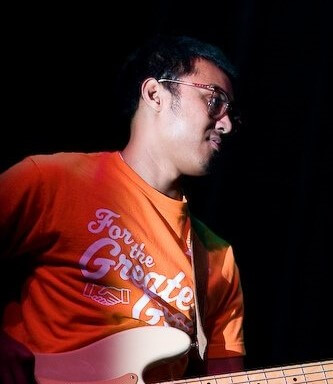 Film Connection student Jonathan Presa (Virginia Beach, VA), who externs with Niko Brabham at Soundvision Studios, has recently found opportunities springing up in some unexpected places:
“I’ve recently joined the film team at my church and I’m having an amazing time creating for something more than for myself. It also keeps me sharp as an editor. I’ve also recently had the opportunity to be a Production Assistant with Digital Thunderdome Studios, working on their latest ESPN 30 for 30 documentary project. I got to meet Greg Scott, a former NFL player! It was amazing! I learned so much as one of their PA’s and I thank my mentor, Niko for prepping me on how to be a productive PA…It’s been a crazy month.
Last Saturday, my mentor took his students around Norfolk to get shots for a “Day In The Life” documentary that we are creating…I feel like I’ve grown exponentially since I’ve started the program. I can’t wait to see what these next few months have in store for me.”
Film Connection student Jonathan Presa (Virginia Beach, VA), who externs with Niko Brabham at Soundvision Studios, has recently found opportunities springing up in some unexpected places:
“I’ve recently joined the film team at my church and I’m having an amazing time creating for something more than for myself. It also keeps me sharp as an editor. I’ve also recently had the opportunity to be a Production Assistant with Digital Thunderdome Studios, working on their latest ESPN 30 for 30 documentary project. I got to meet Greg Scott, a former NFL player! It was amazing! I learned so much as one of their PA’s and I thank my mentor, Niko for prepping me on how to be a productive PA…It’s been a crazy month.
Last Saturday, my mentor took his students around Norfolk to get shots for a “Day In The Life” documentary that we are creating…I feel like I’ve grown exponentially since I’ve started the program. I can’t wait to see what these next few months have in store for me.”
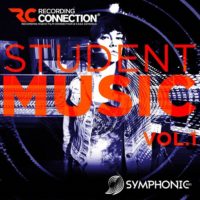 Heard our Student Music Mixtape yet? In partnership with Symphonic Distribution, we’re excited to help our students get their music out to the world!
The Recording Connection is now offering this great opportunity for our students to broaden their understanding of the new role digital distribution companies like Symphonic Distribution can play in helping release their tracks and propel their careers forward!
Heard our Student Music Mixtape yet? In partnership with Symphonic Distribution, we’re excited to help our students get their music out to the world!
The Recording Connection is now offering this great opportunity for our students to broaden their understanding of the new role digital distribution companies like Symphonic Distribution can play in helping release their tracks and propel their careers forward!

RRFC is education upgraded for the 21st century.
Get the latest career advice, insider production tips, and more!
Please fill out the following information, and RRFC Admissions will contact you to discuss our program offerings:
Stay in the Loop: Subscribe for RRFC news & updates!
© 2025 Recording Radio Film Connection & CASA Schools. All Rights Reserved.


